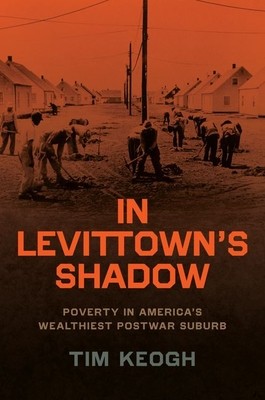
- We will send in 10–14 business days.
- Author: Tim Keogh
- Publisher: University of Chicago Press
- ISBN-10: 0226827739
- ISBN-13: 9780226827735
- Format: 15.2 x 22.9 x 2.2 cm, kieti viršeliai
- Language: English
- SAVE -10% with code: EXTRA
Reviews
Description
Highlights how low-wage residents have struggled to live and work in a place usually thought of as affluent: suburbia. There is a familiar narrative about the American suburbs: after 1945, white residents left cities for leafy, affluent subdivisions and the prosperity they seemed to embody. In Levittown's Shadow tells us there's more to this story, offering an eye-opening account of diverse, poor residents living and working in those same neighborhoods. Tim Keogh shows how public policies produced both suburban plenty and deprivation--and why ignoring suburban poverty doomed efforts to reduce inequality. Keogh focuses on the suburbs of Long Island, home to Levittown, often considered the archetypal suburb. Here military contracts subsidized well-paid employment welding airplanes or filing paperwork, while weak labor laws impoverished suburbanites who mowed lawns, built houses, scrubbed kitchen floors, and stocked supermarket shelves. Federal mortgage programs helped some families buy orderly single-family homes and enter the middle class, but also underwrote landlord efforts to cram poor families into suburban attics, basements, and sheds. Keogh explores how policymakers ignored suburban inequality, addressing housing segregation between cities and suburbs rather than suburbanites' demands for decent jobs, housing, and schools. By turning our attention to the suburban poor, Keogh reveals poverty wasn't just an urban problem but a suburban one, too. In Levittown's Shadow deepens our understanding of suburbia's history--and points us toward more effective ways to combat poverty today.EXTRA 10 % discount with code: EXTRA
The promotion ends in 22d.18:48:22
The discount code is valid when purchasing from 10 €. Discounts do not stack.
- Author: Tim Keogh
- Publisher: University of Chicago Press
- ISBN-10: 0226827739
- ISBN-13: 9780226827735
- Format: 15.2 x 22.9 x 2.2 cm, kieti viršeliai
- Language: English English


Reviews